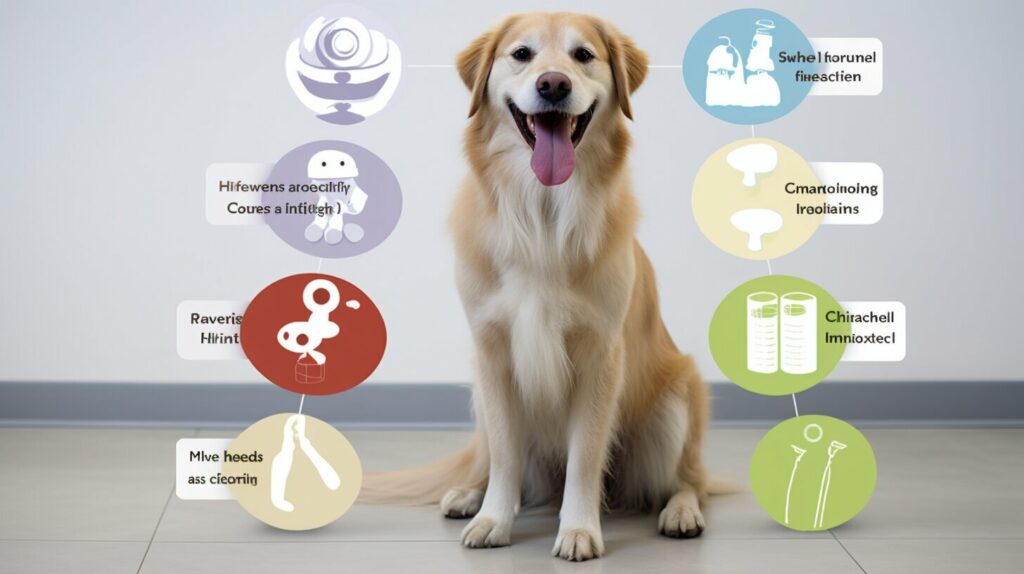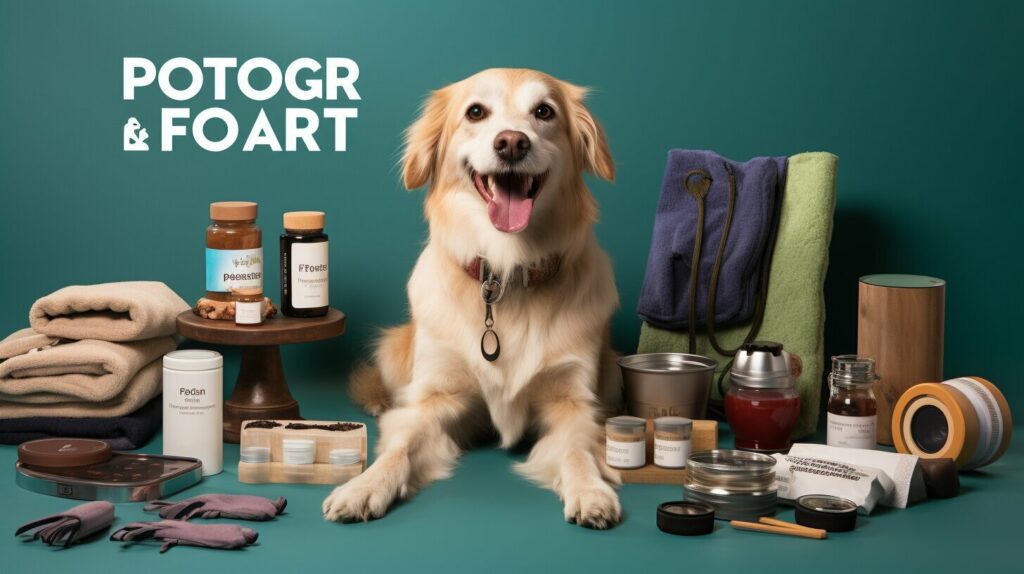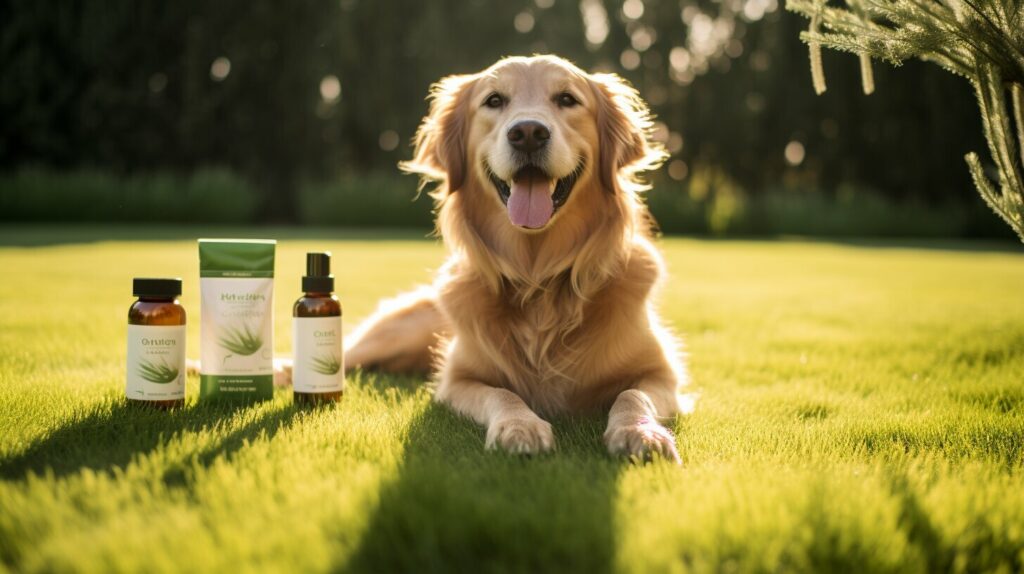Welcome to our article on understanding your dog’s stool. As a dog owner, it is essential to keep an eye on your furry friend’s bowel movements. Your dog’s excrement can serve as a vital indicator of their overall health and well-being. Analyzing your dog’s stool can help you identify problems early on, preventing more severe health issues in the future.
Canine feces may not be the most pleasant topic to discuss, but understanding the basics of your dog’s poop is crucial for responsible pet ownership. In this section, we will explore why it is essential to analyze your dog’s stool and provide you with the knowledge you need to identify any potential health issues.
Key Takeaways:
- As a dog owner, it’s crucial to monitor your dog’s stool as it provides important insights into their health.
- Canine feces can indicate potential digestive issues, nutritional imbalances, and other health conditions.
- Prompt pet waste cleanup is essential for maintaining a healthy and hygienic home for you and your pet.
The Basics of Dog Stool
As a pet owner, paying attention to your dog’s bowel movements is an essential part of monitoring their overall health. Bowel movements in dogs can vary in frequency, color, and consistency, but there are certain characteristics of healthy dog poop that you should be aware of.
What Constitutes Normal and Healthy Dog Stool?
In general, healthy dog poop should be brown in color, well-formed, and easy to pick up. It should not be too hard or too soft; a consistency similar to Play-Doh is ideal. Normal bowel movements in dogs typically occur 1-2 times per day. However, this can vary depending on your dog’s age, activity level, and diet.
If your dog’s stool shows these characteristics, it is considered healthy. So, make sure you pay close attention to your dog’s bowel movements to identify any changes that might indicate a problem with their health.
Signs of Digestive Issues
Dogs can experience a range of digestive issues that can impact their bowel movements, leading to diarrhea, constipation, or other abnormal stool. It’s important to be aware of these signs and understand what they may indicate about your dog’s health.
Dog diarrhea is one of the most common digestive issues in dogs, and it can be caused by a variety of factors, including dietary changes, infections, stress, and more. Diarrhea is typically characterized by loose, watery stool and may be accompanied by vomiting or other symptoms.
Dog constipation is another digestive issue that can be uncomfortable and even painful for dogs. Constipation can be caused by a lack of fiber in the diet, dehydration, underlying health conditions, or other factors. Signs of constipation include infrequent bowel movements, straining during defecation, and hard, dry stool.
Both diarrhea and constipation can be indications of more significant health problems, such as infections, parasites, or other underlying medical conditions. If your dog is experiencing persistent or severe diarrhea or constipation, it’s important to consult with your veterinarian to determine the underlying cause and develop an appropriate treatment plan.
Analyzing Dog Stools for Health Indicators
As a responsible pet owner, it’s important to understand how to analyze your dog’s stool for health indicators. By paying attention to changes in color, consistency, and frequency, you can identify potential problems early on and seek appropriate veterinary care.
Color: Normal dog stool ranges in color from brown to tan to yellow. Black, tarry stool may indicate internal bleeding, while red or bloody stool may indicate an injury or infection. White, chalky stool could signal a problem with the liver or pancreas.
Consistency: Normal dog stool should be firm, with a texture similar to playdough. Loose or watery stool may indicate diarrhea or an infection. Hard, dry stool may indicate constipation or dehydration.
Frequency: Most dogs have one to two bowel movements per day. If your dog is consistently having more or less than this, it could indicate a problem.
Other health indicators to look for include the presence of mucus or blood in the stool, as well as the presence of parasites or undigested food.
It’s important to note that changes in your dog’s stool may be caused by a variety of factors, including dietary changes, stress, illness, or injury. If you notice any abnormal changes in your dog’s stool, it’s best to consult with your veterinarian to determine the underlying cause and appropriate treatment.
Common Causes of Abnormal Stool
If you’ve noticed changes in your dog’s stool, it may indicate a problem. Abnormal stool could mean digestive issues or other underlying health concerns that require attention. Some common causes of abnormal dog stool include:
- Dietary changes: Sudden changes in your dog’s diet can lead to diarrhea or constipation.
- Allergies: Food and environmental allergies can cause gastrointestinal upset in dogs.
- Infections: Bacterial, viral, and parasitic infections can cause diarrhea, vomiting, and other digestive issues.
- Intestinal blockages: Ingesting foreign objects or toys can lead to blockages in the digestive tract, causing constipation or diarrhea.
It’s essential to pay attention to your dog’s stool to identify any changes. Abnormal stool could be a sign of a more severe underlying condition, and it’s crucial to seek veterinary care if these changes persist.
Diarrhea in Dogs
Diarrhea is a common issue for dogs and can be caused by various factors. It can be acute or chronic and may come on suddenly or develop over time. Common causes of diarrhea in dogs include:
- Dietary changes: Abrupt changes to your dog’s diet or eating habits can cause diarrhea.
- Infections: Bacterial, viral, and parasitic infections can cause acute or chronic diarrhea in dogs.
- Medications: Antibiotics, for example, can cause diarrhea in some dogs.
- Stress: Stressful situations, such as travel or a change in routine, can cause diarrhea in dogs.
If your dog has diarrhea, it’s essential to monitor their stool and water intake closely. It’s recommended to withhold food for 12 to 24 hours, then slowly reintroduce a bland diet to help alleviate symptoms. If symptoms persist or worsen, seek veterinary care.
Managing Constipation in Dogs
Constipation can be uncomfortable and even dangerous for dogs, causing strain and discomfort in the bowel and colon. Common causes of constipation in dogs include:
- Diet: A lack of fiber or water in your dog’s diet can cause constipation.
- Lack of exercise: Regular exercise helps stimulate the bowel and prevent constipation.
- Dehydration: A lack of water intake can lead to constipation.
- Obstruction: Ingesting foreign objects or toys can lead to obstructions in the digestive tract, causing constipation.
If your dog is constipated, increasing their water intake and adding fiber to their diet can help alleviate symptoms. If the constipation persists, it’s essential to seek veterinary care to rule out any underlying health issues.
Addressing Diarrhea in Dogs
Diarrhea in dogs can be a common and concerning issue. However, it’s important to keep in mind that it can be caused by a variety of factors, including changes in diet, infections, parasites, and stress.
When analyzing your dog’s stool, look for signs such as watery consistency, increased frequency, and a foul odor. These can be indicators of diarrhea and should not be ignored.
If you suspect your dog has diarrhea, it’s important to monitor them and make sure they stay hydrated. Make sure they have access to clean water at all times and consider adding electrolytes to their water to help replenish lost fluids.
In some cases, dietary changes may be helpful in managing diarrhea. Try feeding your dog a bland diet of boiled chicken and rice to see if that helps. However, if diarrhea persists for more than 24 hours or is accompanied by other symptoms such as lethargy or vomiting, it’s important to seek veterinary care.
At the vet, they may perform tests to determine the underlying cause of the diarrhea, such as stool analysis or blood work. Depending on the cause, treatment options may include medication, probiotics, or dietary changes.
To prevent diarrhea in dogs, make sure to introduce new foods gradually, avoid table scraps, and keep them away from potentially contaminated water sources. Regular stool analysis can also help catch any potential issues early on.
In conclusion, while diarrhea in dogs can be concerning, it’s important to monitor your dog’s symptoms and seek veterinary care when necessary. By being proactive and attentive to their stool and digestive health, you can help ensure your furry friend stays happy and healthy.
Managing Constipation in Dogs
Constipation can be uncomfortable and even dangerous for your dog. When your dog is constipated, they may experience discomfort while trying to defecate and strain excessively. If left untreated, constipation can lead to serious health issues, such as bowel obstruction and megacolon.
There are several possible causes of constipation in dogs, including dehydration, lack of exercise, and dietary imbalances. Stress and medical conditions, such as hypothyroidism, gastrointestinal disorders, and spinal cord problems, can also cause constipation.
If you notice that your dog is straining to defecate or has not had a bowel movement for more than two days, it is essential to take action promptly. Some home remedies for constipation in dogs include adding fiber to their diet, ensuring they have enough water to drink, and encouraging exercise. These remedies can help regulate your dog’s bowel movements and alleviate constipation.
Tip: You can analyze your dog’s stool to monitor their bowel movements and ensure they are not constipated. If you notice hard, dry, and small stool, this could be a sign of constipation.
If your dog’s constipation persists, you should consult a veterinarian for further diagnosis and treatment. The vet may suggest a stool softener or laxative to relieve the constipation. In severe cases, an enema may be necessary to stimulate bowel movements.
Preventing constipation is vital for your dog’s overall health and well-being. Ensure your dog gets enough water and exercise, and maintain a healthy and balanced diet. If you notice any signs of constipation, take prompt action to seek veterinary care to resolve the issue safely and efficiently.
Preventive Measures for Healthy Stool
As a responsible dog owner, there are several preventive measures you can take to ensure your dog’s stool remains healthy and to promote overall well-being.
1. Proper Nutrition
Feeding your dog a healthy and balanced diet is essential for maintaining good digestive health. Be sure to provide them with high-quality dog food that is appropriate for their age, breed, and size. Avoid giving your dog table scraps or feeding them foods that are toxic or difficult to digest.
2. Adequate Hydration
Keeping your dog properly hydrated is also essential for healthy digestion and overall health. Be sure to provide them with plenty of fresh, clean water throughout the day, especially during hot weather or after exercise.
3. Regular Exercise
Regular exercise is important for promoting healthy digestion, as it helps keep your dog’s bowel movements regular and can prevent constipation. Aim to provide your dog with at least 30 minutes of exercise each day, such as brisk walks or playtime in the backyard.
4. Prompt Pet Waste Cleanup
Properly disposing of your dog’s waste is not only important for keeping your yard clean but also for preventing the spread of disease. Be sure to promptly clean up your pet’s waste and dispose of it in a designated area. This can help prevent the spread of parasites and other harmful bacteria.
By following these preventive measures, you can help ensure your dog’s stool remains healthy and that they maintain good digestive health. If you notice any changes or abnormalities in their bowel movements, be sure to consult with your veterinarian to address any underlying issues.
When to Consult a Veterinarian
While some mild instances of diarrhea or constipation may not require veterinary attention, there are certain signs and situations that warrant a visit to the veterinarian.
If your dog’s diarrhea is persistent for more than 24-48 hours, or is accompanied by other symptoms such as vomiting, lethargy, or loss of appetite, it is essential to seek veterinary care. Similarly, if your dog is unable to pass stool or shows signs of distress, such as whining or reluctance to move, it may indicate a serious underlying condition that requires immediate attention from a veterinarian.
It is also crucial to consult a veterinarian if your dog’s stool shows signs of blood or mucus, as this can indicate a bacterial infection or other serious condition.
Remember, as a responsible pet owner, you must be vigilant about changes in your dog’s bowel movements and take prompt action when necessary. Consulting a veterinarian in a timely manner can help ensure your dog’s continued good health and well-being.
Conclusion
As a responsible pet owner, it’s essential to pay attention to your dog’s stool and understand its various health indicators. By analyzing their bowel movements regularly, you can identify potential issues early on and seek appropriate veterinary care to ensure their overall health and well-being.
Remember to keep an eye out for signs of digestive issues, such as diarrhea and constipation, and take preventive measures to maintain healthy dog poop. This includes proper nutrition, hydration, regular exercise, and prompt pet waste cleanup.
If you notice any changes in your dog’s stool that persist for more than a day or two, consult your veterinarian. They can provide you with guidance on potential causes and treatment options to address any underlying issues.
Takeaway
Understanding your dog’s stool and its various health indicators is an essential part of being a responsible pet owner. By staying informed and taking appropriate action, you can help ensure the overall health and happiness of your beloved canine companion.
FAQ
Q: What should normal and healthy dog stool look like?
A: Normal and healthy dog stool should be a chocolate brown color and have a firm, but not too hard, consistency. It should hold its shape and not be too runny or watery.
Q: How often should my dog have a bowel movement?
A: The frequency of your dog’s bowel movements can vary depending on their age, diet, and activity level. However, most dogs typically have a bowel movement once or twice a day.
Q: What are some signs of digestive issues in dogs?
A: Signs of digestive issues in dogs can include diarrhea, constipation, vomiting, excessive gas, and changes in appetite. If you notice any of these signs or changes in your dog’s stool, it may indicate a problem.
Q: Can analyzing my dog’s stool help detect health issues?
A: Yes, analyzing your dog’s stool can provide valuable insights into their overall health. It can help detect parasites, dietary imbalances, infections, and other health issues that may require veterinary attention.
Q: What are some common causes of abnormal dog stool?
A: Common causes of abnormal dog stool can include dietary changes, allergies, infections, gastrointestinal disorders, and medications. Identifying the cause can help determine the appropriate treatment.
Q: How can I address diarrhea in my dog?
A: If your dog has diarrhea, it is important to monitor their hydration and provide bland, easily digestible food. If the diarrhea persists or is accompanied by other concerning symptoms, it is best to consult a veterinarian.
Q: What should I do if my dog is constipated?
A: If your dog is constipated, you can try feeding them a high-fiber diet, increasing their water intake, and encouraging exercise. If the constipation persists or your dog shows signs of distress, it is recommended to seek veterinary assistance.
Q: How can I prevent unhealthy dog stool?
A: To maintain healthy dog stool, ensure your dog receives a balanced diet, stays properly hydrated, gets regular exercise, and their waste is promptly cleaned up. These preventive measures can help promote good digestive health.
Q: When should I consult a veterinarian?
A: It is important to consult a veterinarian if your dog’s stool remains abnormal for more than a day, if they show signs of distress or discomfort, or if there are other concerning symptoms present. A veterinarian can assess the situation and provide appropriate guidance.



